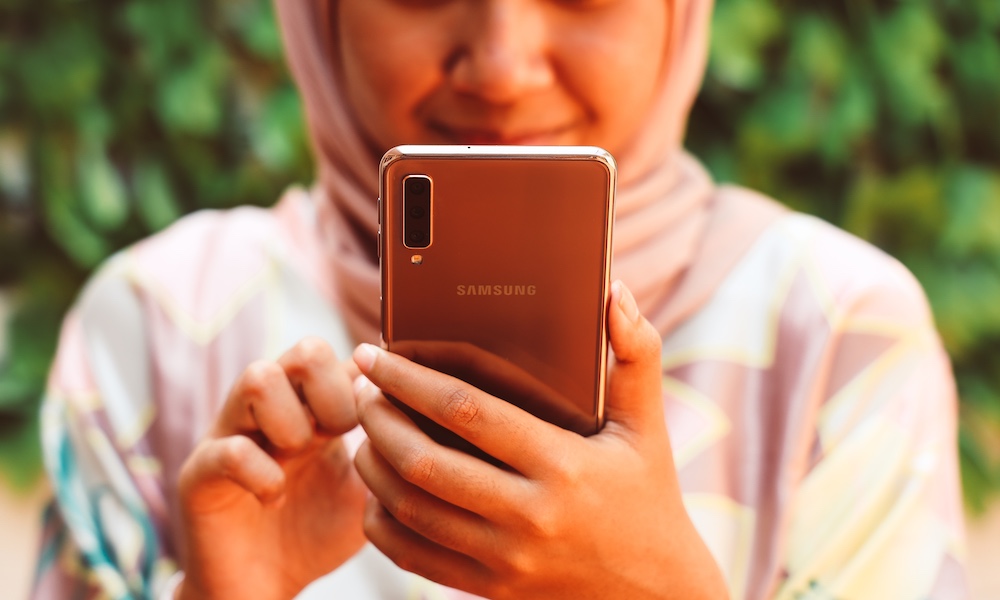Samsung Admits It’s Also Facing Apple’s Biggest Problem
 Credit: Lukmanazis / Shutterstock
Credit: Lukmanazis / Shutterstock
Toggle Dark Mode
According to recent reports, Apple (NASDAQ: AAPL) has been struggling to sell its latest (and most expensive) 2018 iPhone models, with the company’s Chief Executive last week issuing a rare and market-roiling memo to investors, warning of the firm’s impending multi-billion dollar quarterly revenue shortfall.
To be sure, it’s been a sad year of losses for AAPL so far; but as the worldwide smartphone market continues down its course of increased competition and contraction (particularly with high-end handsets), the iPhone-maker is no longer alone in its struggle.
Citing similar issues such as a weakening Chinese economy, South Korean tech juggernaut, Samsung Electronics, is also warning investors this week that its profits will be down — more than likely for the next two quarters, at least — and even more, percentage-wise, than Apple’s, according to a South China Morning Post report.
Specifically, Samsung expects to post a net profit of 10.8 trillion won (~$9.67 billion) based on sales revenue of 59 trillion won (~$52.4 billion) during the h
What’s Happening?
The Galaxy-maker, in issuing its warning, just like Apple cited the worsening state of China’s economy (where it holds a meager one-percent marketshare) as the main reason for its expected revenue shortfalls. However, the company continued, a simultaneous and unforeseen drop in both the demand for (and price of) its mobile SSD memory chips — one of its historically best-selling products — is also to blame.
“What’s happening is that memory demand has really fallen off a cliff in (the fourth quarter),” Mark Newman, managing director at Sanford C. Bernstein, explained to CNBC, noting that the weakness is largely attributable to “data center demand being pushed down, and also smartphone’s (demand is) pretty weak.”
“So, suddenly, what’s happened is data center companies such as Amazon, Microsoft, Google… these companies suddenly have enough memory, and they stopped ordering. And that has really been one of the major stumbling blocks for these memory companies.”
Apples to Oranges?
Interestingly, Samsung also withheld further details concerning the sales performance of its latest Galaxy S and Note flagships — although the company, unlike Apple, is more than likely to reveal these crucial figures during its earnings call later this month.
Apple, at the end of January, will also reveal its Holiday quarter earnings, which will expectedly fall about $9 billion short of Wall Street’s expectations — again, almost entirely because iPhones (with the exception of iPhone XR) simply aren’t selling as well as expected..
Then again, neither are Galaxy devices, as we can see.. But that just seemingly confirms the current consensus among tech-industry power-players, which is that the global smartphone market is not only contracting, but “plateauing,” meaning that consumers are holding onto their devices longer (and discerning less value in upgrading their handset) likely due to a combination of cost and factors like a lack of exciting or otherwise compelling features.
Ultimately this issue isn’t limited to just Apple or Samsung, exclusively, but applies to the smartphone market — and particularly the very high-end, thereof — as a whole, according to reports. And so, It’ll certainly be interesting to see what Apple, Samsung and other high-end smartphone-makers like LG and Google not only have in store for






